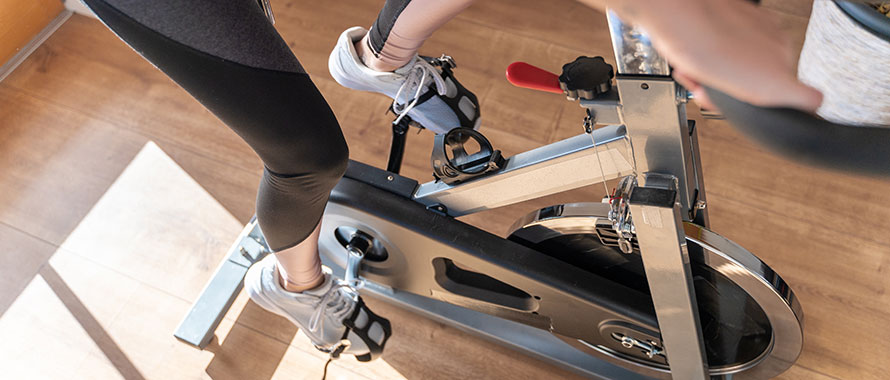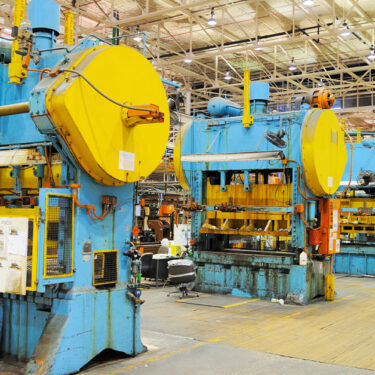Peloton is recalling nearly 2.2 million exercise bikes after receiving 35 reports of seat posts unexpectedly breaking during use, the company announced on May 11. The voluntary recall can be remedied with a free updated seat post that users can self-install. Customers are asked to immediately stop using their affected bikes until the update is completed.
Featured Solutions
“Any recall is going to have some sort of impact on the bottom line,” said Steve Bartell, Senior Broker, Casualty, Burns & Wilcox Brokerage, Chicago, Illinois. “It is just a continuing, ongoing saga for Peloton, unfortunately.”
Peloton shares dropped 7% after the recall was announced, Reuters reported, and it comes as the company contends with reduced sales and not long after it faced a $19 million penalty for its handling of a defect on another product that was ultimately recalled. In these situations, the protection of both Product Recall Insurance and Products Liability Insurance can prove to be indispensable.

Any recall is going to have some sort of impact on the bottom line. It is just a continuing, ongoing saga for Peloton, unfortunately.
“The cost of correcting the seat issue is likely going to be massive,” said Derek Kilmer, Associate Managing Director, Broker, Professional Liability, Burns & Wilcox, Detroit/Farmington Hills, Michigan. “Their shares are already down 7%, so it is a question of how they are going to repair their brand reputation now that this is their second product in about as many years that has been pulled from the market.”
Brand could be taking ‘more cautious’ approach after prior issue
The $19 million civil penalty Peloton agreed to pay in January was related to an entrapment hazard with its treadmill, the Tread+, which was linked to over 150 reports of individuals or pets getting hurt or killed, NPR reported. According to the Consumer Product Safety Commission, Peloton started receiving injury reports in December 2018 but did not immediately report the issue. A recall of the Tread+ was not announced until May 5, 2021, by which time the 150-plus reports had accumulated. The agency also accused the company of knowingly selling 38 recalled treadmills even after the recall was announced.
With this latest recall involving the Peloton Bike, it appears the brand could be taking a more proactive approach, Bartell said.
“To me, this looks like more of a reaction to make sure no one else gets injured, which could ultimately lead to product liability losses,” Bartell said. “They may be being more cautious than what they probably had been in the past.”

Their shares are already down 7%, so it is a question of how they are going to repair their brand reputation now. …Any type of negative publicity can affect them tremendously.
According to the Canadian recall announcement for the Peloton Bike, the seat post issue occurred primarily with users taller than 5-foot-11 and over 250 pounds. While the concerns seem to be less severe than the treadmill malfunction, the recall can still have a major impact, Kilmer said.
“Since they are in dire need of sales, any type of negative publicity can affect them tremendously,” Kilmer said. “Peloton was very big through COVID but with more folks getting back into a lifestyle where they might be going to a gym versus working out at home, they are likely trying to figure out how to compete with that. They do not need to lose any more users right now.”
During a recall, companies face expenses ranging from the notification of customers to the shipping of replacement products. Product Recall Insurance is designed to cover these expenses, along with potential revenue loss, brand rehabilitation services and other costs. If customers were injured by the faulty product, Products Liability Insurance could pick up expenses such as medical bills, legal defense and settlements. Both policies are important for product manufacturers of all sizes, especially as inflation drives up overall costs in both the U.S. and Canada.
“There is just inflation across the board: goods cost more, employees cost more,” and the cost to remake a product or a component of a product has increased, Kilmer said.
Still, many companies forgo Product Recall Insurance, mistakenly believing they are not at high risk for a recall or only purchasing insurance if they are contractually obligated to do so. “Anytime you are creating a product, Products Liability Insurance is something everybody is going to buy. Product Recall Insurance may be seen as more of a ‘wish list’ item,” Kilmer said, explaining that this can put them at risk for losses. “Most small or mid-sized businesses still do not buy it.”
Paying for product rework, injury claims
Earlier this year, new data showed that the U.S. saw a record number of product recalls during 2022, including 10-year highs for recalls in the food and pharmaceutical industries. When a product is recalled, producing and sending out replacements — like the seat post that Peloton will provide as part of its recall — is “likely to be very expensive,” Bartell noted. “That could be their largest expense,” he said.
Product Recall Insurance could pay for this, including designing, testing and shipping the replacement item, Kilmer added. For some companies, that may include bringing in outside experts or consultants, and overtime pay for workers so that the process can be completed as quickly as possible. “The policy could pick up all of that expense,” he said.

Those injuries can potentially become a big issue for them down the road, especially with the cost of litigation being extremely high these days. If the issue caused 15 or 20 losses, costs could be exponential.
When injuries have been reported due to the product, additional costs are likely. A waffle maker was recently recalled in the U.S. and Canada after a latching mechanism issue led to 44 incident reports, including 34 consumer burn injuries, CTV News reported May 21. On May 18, a recall of 4.9 million Target candles was announced after 100 individuals reported issues with the candle cracking during use and six customers reported injuries, The Hill reported. In April, Health Canada recalled an infant crib due to the risk of entrapment and injuries to other children; no injuries had been reported at the time of the recall, according to CTV News.
Responding to consumer injuries “is where costs can be impacted pretty heavily,” Bartell said, pointing to the recent Peloton Bike recall. “There were 35 reports of the seat post breaking, which is a pretty small number, but one of those 35 will probably file an insurance claim somewhere in there,” he said. “Those injuries can potentially become a big issue for them down the road, especially with the cost of litigation being extremely high these days. If the issue caused 15 or 20 losses, costs could be exponential.”
Insurance could exclude punitive damages, voluntary recalls
When purchasing Product Recall Insurance or Products Liability Insurance, business owners should be aware of possible exclusions. Peloton’s $19 million fine related to their previous recall, for example, could be excluded under some Product Recall Insurance policies, Bartell said. “A lot of insurance policies come with a punitive damages exclusion,” he said. “I would avoid having that exclusion.”
Other policies will only provide coverage for recalls that are mandated by the government. In Canada, the Canadian Food Inspection Agency oversees about 175 recall incidents per year, most of which are voluntary, according to the agency. Most U.S. recalls are voluntary as well, a spokesperson for the Consumer Product Safety Commission noted in a recent Vox report.
“Not all policies cover voluntary recalls,” Kilmer said. “It would usually be a regulatory intervention from the government. Some of the policies want to get ahead of this, so they will cover voluntary recalls to help limit costs.”

Consumers are typically quicker to forgive if it is a voluntary recall and you are getting ahead of it. Business can come back, but you want to make sure you are purchasing insurance, especially at a time when maybe you cannot afford a recall to your bottom line.
Business interruption coverage, which can pay for lost revenue during recall-related delays or production setbacks, and brand rehabilitation are among other important aspects of Product Recall Insurance. It is currently becoming more common for policies to have lower sublimits on services that address reputational damage, such as crisis communications, Bartell pointed out.
“With a larger public company, getting information out to the media, on Twitter and whatever forms of social media they use is very important,” he said. “We are starting to see more sublimits or coinsurance for reputation damage control because that can be pretty costly.”
A shifting consumer type may also be driving recall activity, according to Kilmer. “The consumer in today’s society is a little more demanding from a product standpoint,” he said. However, he said, “Consumers are typically quicker to forgive if it is a voluntary recall and you are getting ahead of it. Business can come back, but you want to make sure you are purchasing insurance, especially at a time when maybe you cannot afford a recall to your bottom line.”
From high-profile recalls to those that never make headlines, any recall can be tremendously expensive — putting businesses at risk of closure if they are not prepared. “Peloton paid a big fine because they did not properly report a defect on their Tread+ treadmill,” Bartell said. “Companies can end up paying pretty significant fines if they do not handle these recalls properly. It goes to show that everyone should have recall policies and procedures in place, and hopefully also buy insurance policies to go along with that.”







